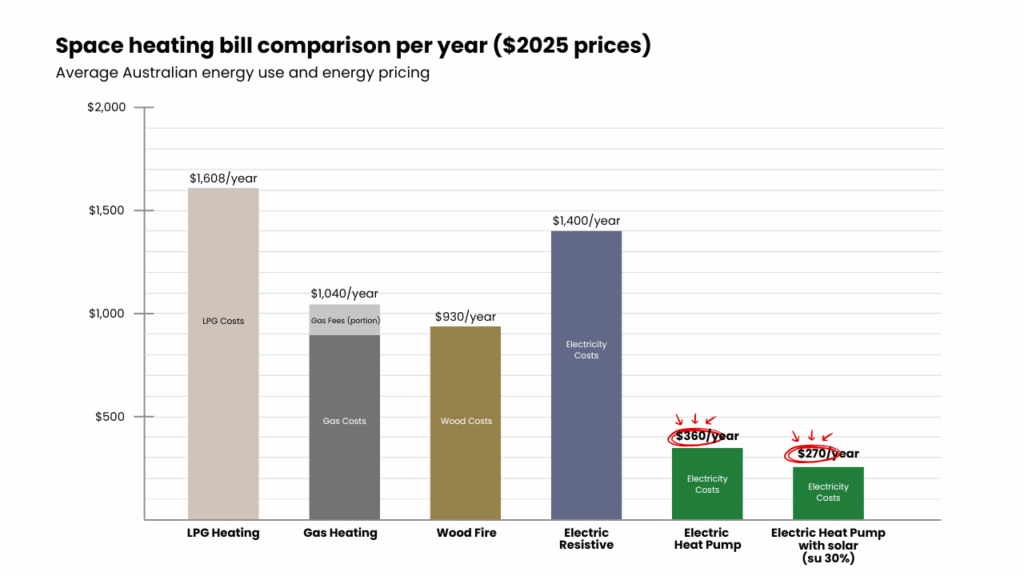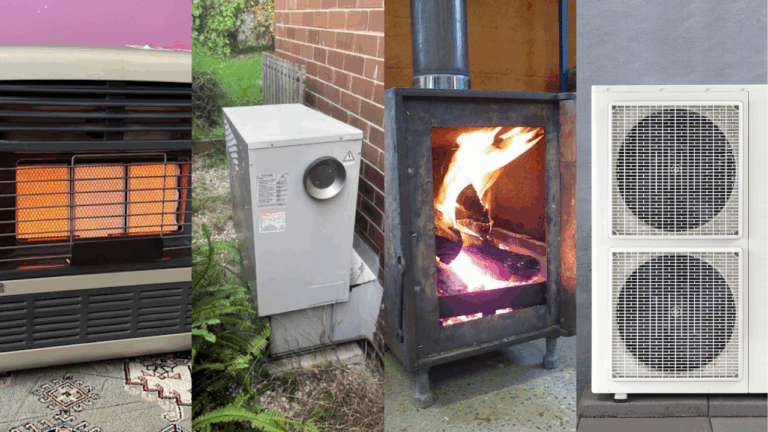The Costs of Heating Your Home: The Silent Killer
Have you taken a look at your energy bills lately?
If you’ve been wondering why your energy bills are through the roof, you’re not alone.
A recent report by Rewiring Australia showed that some Aussie homes can be racking up up to $1,608 per year on space heating bills alone, while others have only paid $360 for the entire year.
The reason for this gap laid in a simple household decision – what heating and cooling appliances you’re powering at home. The older and less energy efficient the appliance is, the more energy and money is used. Heating and cooling takes up a major portion of household energy bills and the report found that LPG heaters, gas heaters and electric resistive heaters are a few of the most expensive appliances when it comes to heating.
In addition, households using these heaters also have to use electricity to power fans in the summer, using more energy with the lack of temperature and zone control. Because of such reasons, energy efficient air conditioners that use a reverse cycle system to draw in ambient air and use refrigerants to transfer the heat from outside to inside the home are becoming a favoured option for most Aussie homes.

Source: The Electrification Tipping Point – Rewiring Australia
Source notes: Rewiring Australia analysis. Residential Baseline Study 2021, heat pump COP 4.0, resistance 1.0, gas/LPG 0.8, wood fire 0.65. Electricity price $0.32/kWh, gas $0.15/kWh, LPG $0.28/kWh, wood $0.13/kWh. Solar $814/kW financed at 5.5% over 30 years with one replacement inverter.
Carbon Monoxide

LPG Heater, Gas Heater, Wood Fire Heater and Electric Heat Pump outdoor unit
But the high energy bills aren’t the only cost of using gas heaters at home – gas and LPG heaters burn highly flammable fuels in order to produce heat. Carbon monoxide is often a byproduct of these heaters as a result of incomplete combustion when there is not enough ventilation. Carbon monoxide is a colourless, odourless and tasteless gas that can cause lethal carbon monoxide poisoning when exposed to it for a prolonged period of time. Carbon monoxide is a silent killer that can be extremely dangerous to vulnerable individuals, especially those with weak respiratory systems. The Victorian government has put out warnings regarding open-flued gas heaters to advise customers on the dangers of gas heaters.
State governments are encouraging the switch to reverse cycle air conditioners by providing rebates and discounts for eligible homes; the Victorian Energy Upgrades program is one of the most successful and longest running pushes towards more sustainable homes by the Victorian government. With over 3 million homes making at least one upgrade, it is set to continue until December 31st 2045.
Heating & Cooling Options
Air Conditioner upgrades are long term investments that will help you save on energy bills for years to come. Despite their high upfront costs, air conditioners are much more environmentally friendly, sustainable and energy efficient compared to old gas heaters.
Reverse cycle air conditioners work in a way that uses the ambient air outside to transfer heat instead of using combustion for heat. This way, you are using less energy and resources to produce the same results.
At NRG7, we offer: split system, ducted system and VRF in order to cater for our customers – choose from a variety of brands that will best suit your home’s specific heating and cooling needs.
Interested in protecting your home and upgrading to an air conditioner? Give us a call at 1300 242 958 today!
